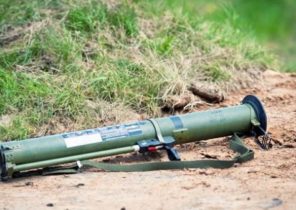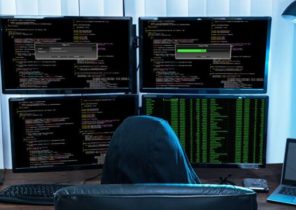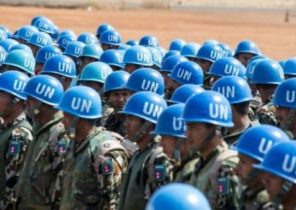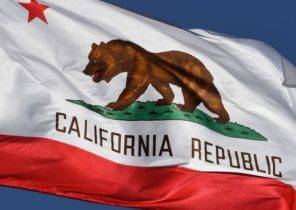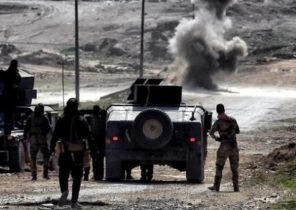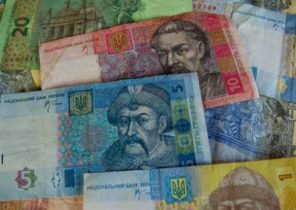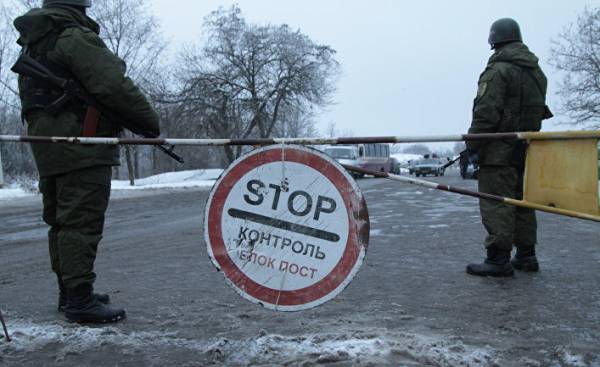
I still remember the first soldier I interviewed in opposition to the Donetsk Republic. All you could see were frightened brown eyes. On the face was stretched Balaclava. Figure it was kind of antsy, as often happens with insecure teenagers. It was December of 2014, the war between rebels and government soldiers in Ukraine lasted little more than six months. What made a young man want to sacrifice his life for the rebel Republic?
“In my village came Ukrainian soldiers and raped all the women. I wanted to protect our women, therefore, went to war,” he said.
“And you saw that someone was raped?” — I asked.
“No, but I heard about it”, — he said.
“From whom?”
“I read on the Internet”.
“So you raped one of don’t know?”
He shook his head, but the commander growled to him that he needs to remember.
The pursuit of truth
During the year, conducted by me in the breakaway Donetsk Republic, I heard many similar stories. Mass graves of civilian women. About Ukrainians, whose back was tattooed with a swastika. The horrendous torture by both sides. The problem is that very few of these cases documented.
Some evidence can be found in the UN report on human rights, but many of the stories are anecdotal in nature. Details are reported in local Newspapers, on social media or on television, and without equivocation. The problem is that often it isn’t true. In 2015, the air force found that the information on the 10-year-old girl allegedly murdered in Donetsk, was a fiction.
In the summer of 2016 we with the photographer Kyrre Liena (Kyrre Lien) checked the authenticity of the story about the four civilians killed at the checkpoint on the Ukrainian mine. One of them, allegedly, was a young pregnant woman. But the reality is at odds with the press reports. In the morgue, we were told that the murdered woman was about 50 years. “She was pregnant?” — I asked. At the head of the morgue ran his eyes he muttered “No comment” and asked us to clear the room.
In Luhansk reported that the slain Norwegian mercenary. But when I came to the morgue, where, allegedly took the body of the dead man, revealed that there are already a lot of weeks not brought a single corpse. You can guess that it was all fiction.
The power of rumors
False information has two consequences: it creates the image of the enemy of the representatives of the other side and leads to fear and to strengthen discipline within its own ranks. Some stories even their own forces are not presented in the best light. For example, the separatists are willing to state that imposed the death penalty, but as yet no one sentenced in Donetsk to the death penalty has not been executed.
Soldiers-scouts often talk about methods of torture, and it is a poorly disguised threats to the disobedient. Of course, in the breakaway republics, there are cases of torture, but according to my experiences, the words are all much worse than in reality.
Showdown in YouTube
Propaganda came to Donetsk sooner than weapons. It all started with a series of demonstrations on the streets of Donetsk in February, March and April 2014. The demonstrators were divided into two groups: some supported the revolution on the Maidan, while the other sought independence from Ukraine. A study conducted by the American Pew Institute in April 2014, testified that only one of four in the East of Ukraine trust the new government.
However, both in the East and in the West support the idea of a unified Ukraine were surprisingly significant. 70% of Eastern Ukrainians still wanted to be part of Ukraine. Figure in the country — 77%. However, a rebel group occupied the administration building, disarmed the police and created people’s Republic, which does not recognize no one, except the separatists.
At the same time in Donetsk began to arrive Russian. One of them was Roman Manekin, an ideologist, historian and writer, who immediately began to provide the rebels intellectual alibi. He gathered around him a group of young people who had to cover the rebellion on YouTube and social networks. When the rebels took control of the regional authorities, according to Manekin, it was supported for a whole edition.
Struggle with the press
Then he began to struggle with traditional media. Chief editor of “Donbass”, Aleksandr Brizh, put the voice of the drill and ordered to close the newspaper, otherwise he promised to shoot. The newspaper “Island” rebels in disguise was that if journalists did not immediately leave the building. Other critical journalists thrown in prison, some chose from the region to flee.
When I lived in Donetsk in the spring of 2015 and summer of 2016, there were no independent media. And soon disappeared, and independent organizations. The leaders of the popular movement “Responsible citizens” lost property — it was confiscated and was thrown in the notorious cellars of Riot police.
In October 2015 from Donetsk threw the representatives of “Doctors without borders”. A UN convoy with humanitarian aid was not allowed through the border. In the region there was only the Red Cross and the Czech organization “People in Need”. Naturally, they were afraid to tell the press about what actually occurred in the breakaway Republic. In such circumstances, to promote are created particularly favorable conditions. But in order for propaganda to be effective, people must also take part in the game.
The truth can you learn from grandparents
One day in August last year in kindergarten on the outskirts of Donetsk hit by a shell. The next morning on a scene there has arrived a motorcade. It consisted of journalists and the press Secretary of the separatists Eduard Basurin.
He was wearing stylish sunglasses, he confidently walked over to the shelled building of the kindergarten. Ready to tell viewers and readers of today’s Internet information. But this time, the press conference did not go according to script.
Ran up to him an elderly woman: “Why you shelled Ukraine from our homes? I with my own eyes saw you in the evening bring your rockets, and then during the night take”, she said.
“Hush!” — yelled Bacurin. But it didn’t help.
“Cut the cameras”, he shouted. It helped. The so-called press has turned the lens the other way.
“So, do you want to remove, when someone asks these questions?” shouted the man in the crowd. In the end, President Francois Hollande brought a journalistic motorcade and departed for home. The press conference was cancelled.
General interest
Six months later, hostilities in the East of Ukraine intensified. Many journalists went to cover the conflict from the Ukrainian side, only a few were reporting from areas under rebel control.
Perhaps there is nothing strange, because it’s getting increasingly difficult to obtain accreditation from the rebels or from the Ukrainian intelligence permission to cross the border. Both sides want to keep independent witnesses at a distance. So can be tricked to recruit for the war new young guys.
